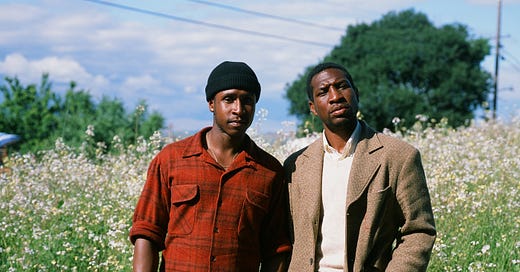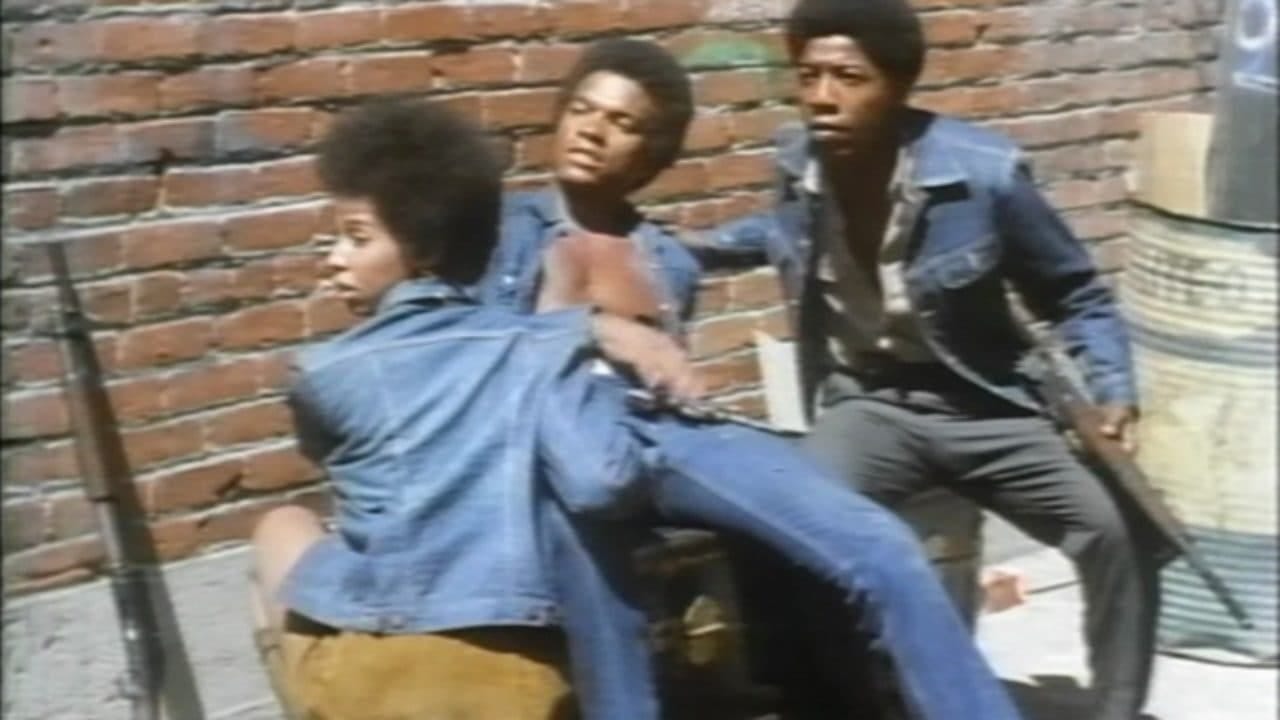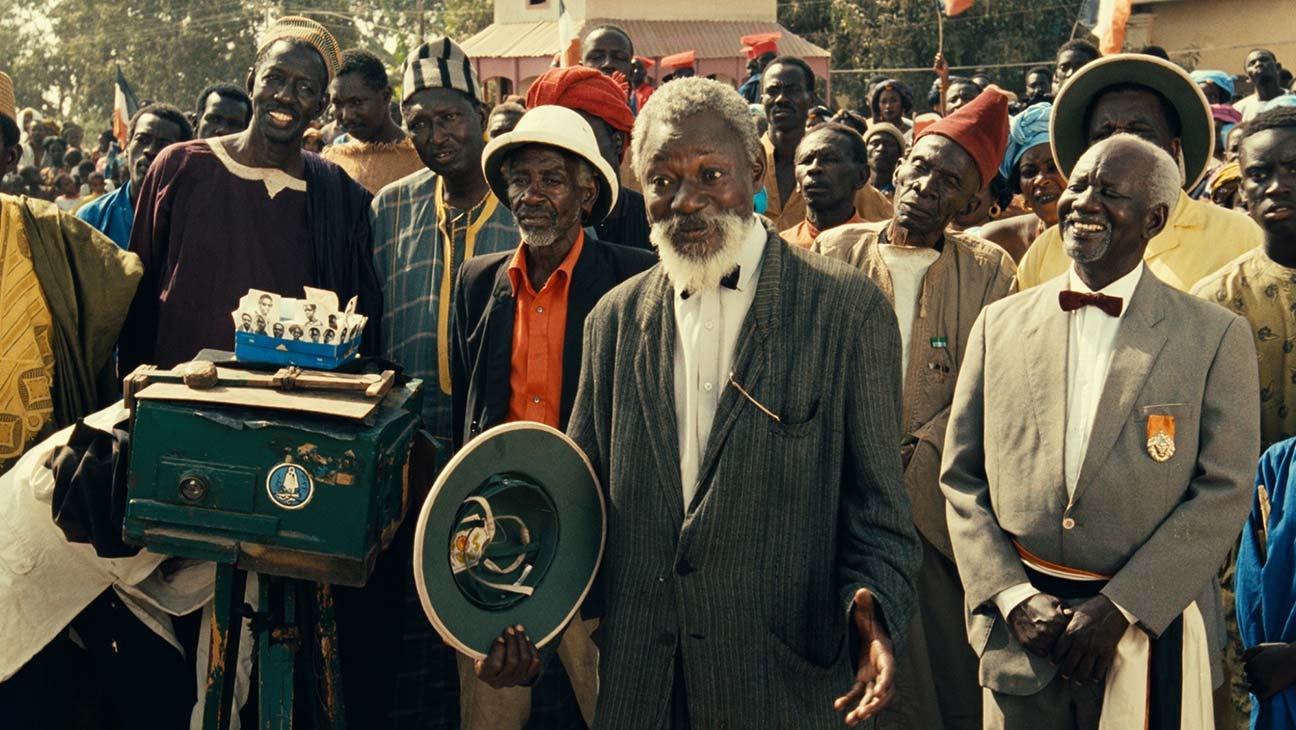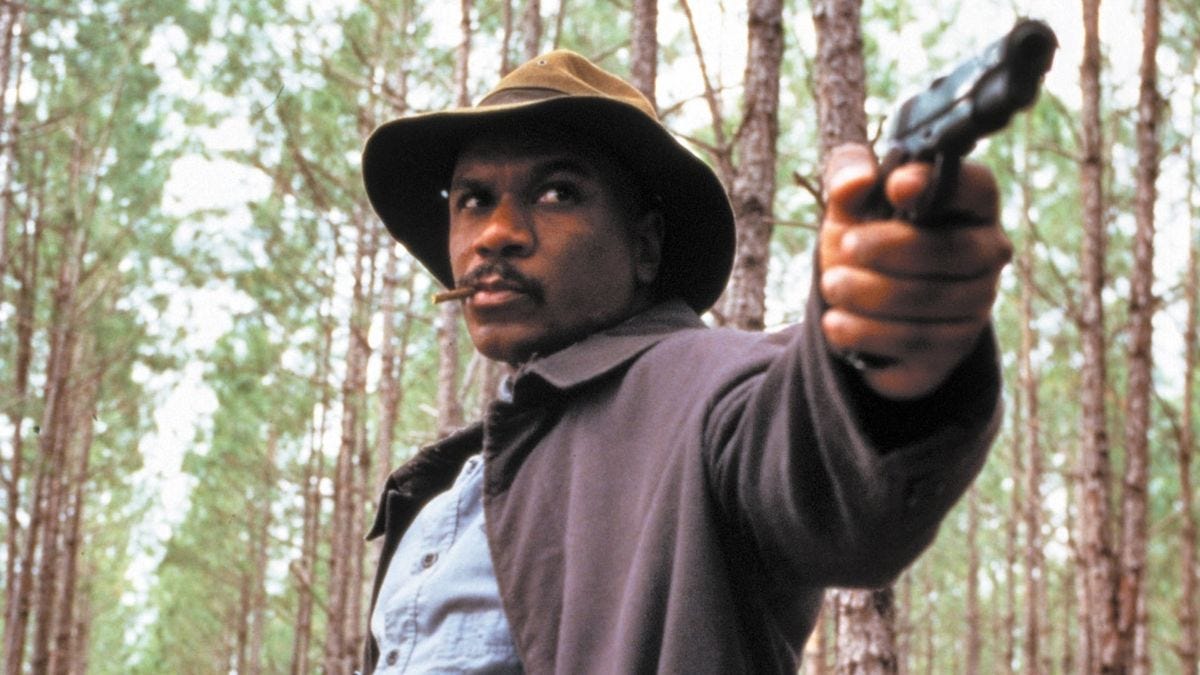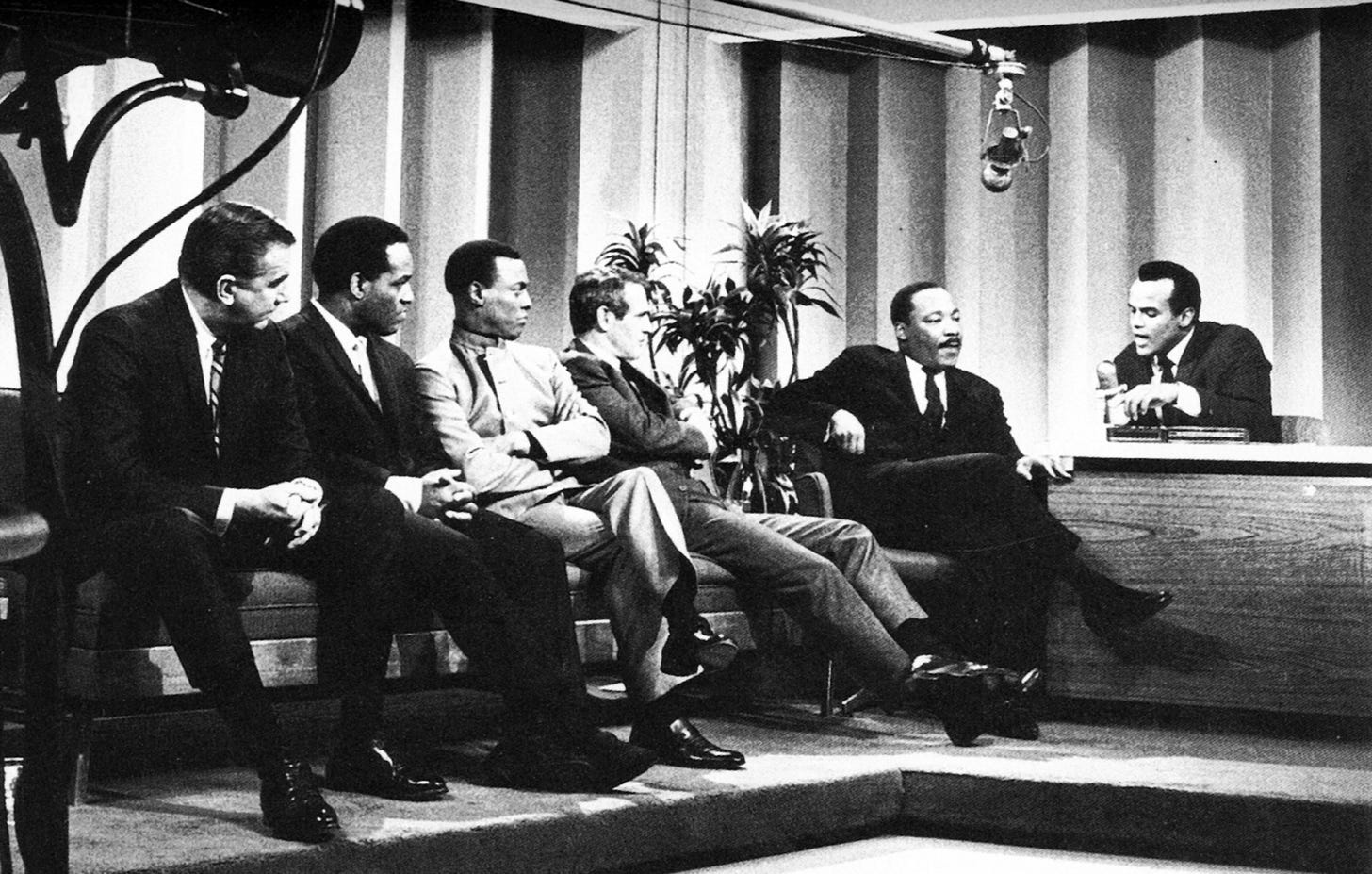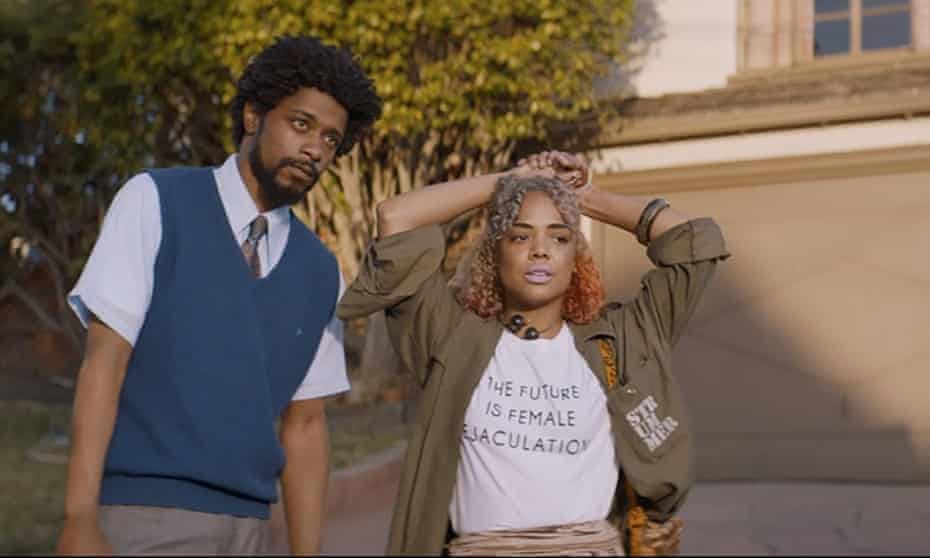Welcome back to the second issue of Cut the Cord. I hope you enjoyed our January issue. If you watch(ed) anything that I suggest here, let me know what you think about it. You can reply to this email or leave a comment below.
Before we get started, I would like to thank you for being here. If you joined us between our first issue and this one, welcome! I hope that this project keeps you entertained while saving you some money. I have some ideas about additions to the format that extend beyond some of the streaming services we are highlighting, so be on the lookout for those in future installments.
The theme of this month’s issue is Black Cinema. I don’t want to be one of those guys that solely talks about black movies because it’s February. On the contrary, I’m hoping that this list can be a the antidote to the lists that only feature movies directed by Spike Lee (I love Spike!) or the same movies again and again. Hopefully you find something new here and hopefully you find something you like.
The Last Black Man in San Francisco (2019)
Jimmie Fails dreams of reclaiming the Victorian home his grandfather built in the heart of San Francisco. Joined on his quest by his best friend Mont, Jimmie searches for belonging in a rapidly changing city that seems to have left them behind.
Despite this movie being first on the list (they aren't in any order), I saved writing the blurb for it last. I'm having a difficult time putting to words what exactly is so special about The Last Black Man in San Francisco. There's an undercurrent throughout the film of heartache and invisible pain that is expressed with such thoughtfulness. It's so tender, in a way that few other movies are, that it feels almost wrong to not let the movie speak for itself.
The co-writers Joe Talbot and Jimmie Fails also respectively work as director and lead actor and their love for this fictional autobiography, the waves of human geography, and the city of San Francisco is felt throughout this incredibly moving piece that doesn't just examine gentrification, but is a portrait of those directly affected by it.
The Final Comedown (1972)
Black revolutionaries take action in the white suburbs.
From the opening minutes of the movie, they tell you how it's going to end.
But even if they didn't warn us of a harrowing demise, we would expect it anyway. It's almost inevitable. When this blaxploitation flick from '72 introduces Billy Dee Williams in a Black Panther-adjacent radical group as he grows more and more frustrated with police brutality, the ending is inescapable.
At the end of the film, as he lays there dying in the aftermath of a police shootout, it flashes back to his rhetoric before the bloodbath: The system is destroying us. We don’t want to fight. But we’re alone and we want to live. So we have to fight. And some of us have got to die.
You would've thought that this film would have found a new (albeit unfortunate) life over the past few years, but that has not happened: it has less than 400 logs on Letterboxd. A new restoration would bring this film back to life at a time we may need it most.
Hyenas (1992)
After being kicked out of her African village three decades earlier for getting pregnant out of wedlock, Linguere has returned home. While Linguere has done well for herself, her home village has fallen on hard economic times. Intent on punishing Dramaan, the man who fathered her child but refused to own up to the act, Linguere makes a proposal: She will help the town financially, if the locals agree to execute Dramaan.
Who says that Black Cinema has to mean African American Cinema - what about African Cinema? Hyenas is a Senegalese adaptation of a German play called The Visit. If you have a theatrical background like myself, you've read The Visit. It's Theatre History 101. Hyenas is a pretty direct adaptation, so you'll know how everything will play out. It is still interesting to see how the move to Senegalese culture affects the story.
If you aren't familiar with The Visit, you're in for a sort-of backward whodunit (a whowillit? I don't know...) with the deepest of moral questions, the darkest of humor, and the witchiest of villains, (Ramatou is not evil at her very core, but think Nurse Ratched ominous.)
1 Angry Black Man (2018)
Mike Anderson is a senior at the quintessential New-England liberal arts school, Frost College. And Mike is eight weeks away from graduation. On this particular day he has his African-American Literature class with his favorite professor. But today, Mike is feeling sadness. He’s feeling isolated. He’s feeling angry.
A few years ago, I saw a production of 12 Angry Men at Ford's Theatre in Washington. This production, directed by Sheldon Epps, cast six white actors and six black actors, making the racial subtext of the piece active text. It was brilliant - I ended up seeing it twice.
In 1 Angry Black Man, writer-director Menelek Lumumba is inspired by the same classic play but has no interest in subtext. In his film, students of all colors in a black literature class at a primarily white liberal arts college openly debate each other about the issues in their assigned readings and how those pieces come to life in the world around them.
I went to a small, predominantly white liberal arts college and sat through many classes just like this one. I can tell you that Lumumba got that part just right, but I am considerably more impressed by the more difficult tasks he has assigned himself.
For starters, he hosts conversations with Trump supporters and Clinton voters where no one is wrong and everyone is instead confused and disappointed. He addresses white guilt and liberal reactiveness. He asks: When are white liberals trying too hard and when are they not trying enough?
Whatever your viewpoints on any of these issues may be (I wasn't crazy about how earnest the Trump supporter was), he makes one thing clear: if we never learn any lessons from 2016, we will never be able to move on. And if we never learn any lessons from Baldwin, Hurston, or Wilson, we have done it all wrong.
Rosewood (1997)
Spurred by a white woman’s lie, vigilantes destroy a black Florida town and slay inhabitants in 1923.
The following appeared previously in my article Concrete Cowboy and Other Black Westerns.
As the 100th anniversary of this true story approaches in just a few years, this movie can show us just how little has changed over time. Progress has been made, eyes have been opened, injustices brought to light, but some things have remained exactly the same: mob mentality, passive racism, white fragility, and more all come to mind.
Characterizing this as a western seems disingenuous at first, but it’s a label that really works here, (especially if we’re okay with labeling something like Nomadland as a western.) A lone man in black strolls into a small town to start a quiet life — and finds anything but. Makeshift bounty hunters and imitation lawmen carry out their own version of justice in a lawless place, blurring prejudice, moral obligation, honesty, and remorse into an ending only director John Singleton (and few others) can handle with such skill.
The Sit-In: Harry Belafonte Hosts The Tonight Show (2020)
For one week in February 1968, Johnny Carson gave up his chair to Harry Belafonte, the first time an African-American had hosted a late night TV show for a whole week.
Every talking head in this documentary says the same thing, "I had no idea that Harry Belafonte hosted The Tonight Show for a week in 1968!" I didn't know that and you didn't know that either. And when you find out that he brought on guests that ranged from Paul Newman to Dr. Martin Luther King Jr. to The Smothers Brothers to Robert F. Kennedy to Bill Cosby, the documentary becomes a must-watch.
Although it's a great history lesson and quite an interesting barometer for 1968 America, not much of the footage from that week survived. Most recordings of any Tonight Show pre-1972 were wiped and taped over with newer episodes. The clips we do have survived thanks to an amateur archivist. The doc does a good job of telling the story without a ton of the footage, but it's definitely a case study in the importance of preserving history.
Sorry to Bother You (2018)
In an alternate present-day version of Oakland, black telemarketer Cassius Green discovers a magical key to professional success – which propels him into a macabre universe.
When I first saw Sorry to Bother You, I thought I was in for a Spike Lee Joint-inspired, 90s infused take on the 9-to-5 life. I couldn't have been any more wrong, (are we ever happy with movie trailers? either they tell us too much or they don't tell us enough…)
To tell you basically anything that I love about Sorry to Bother You would spoil the best moments (avoid spoilers like the plague), so please trust me that you have to see this movie. I saw it almost four years ago and I still think about it every single day. It's one of my personal favorites and I need more from director Boots Riley.
Lakeith Stanfield is one of our very best right now and he gets to do everything he does best here.
Prince - Sign o’ the Times (1987)
In 1987, to capitalize on his growing success in Europe, Prince toured extensively to promote the album of the same name and sales increased accordingly. However, the United States remained resistant to his latest album, and sales began to drop; it was at this point that Prince decided to film a live concert promoting the new material, for eventual distribution to theaters in America.
Let's end this list with a bang.
It's a damn Prince concert film! What more do you need!
He does everything he did best here: melodrama, crazy theatrics, bold getups, and the danciest rock pop this side of The King.
Sign ☮ the Times was hard to watch in the States for a long time - it's never received a DVD or Blu-ray release. But it seems to be widely available on many streaming services now, so take advantage.
Thanks for reading. If you liked this, tell your friends. There’s more where this came from. See you next month.
Thanks for reading Cut the Cord! Subscribe for free to receive new posts and support my work.
Credit: Each plot synopsis comes from Letterboxd via TMDb.

